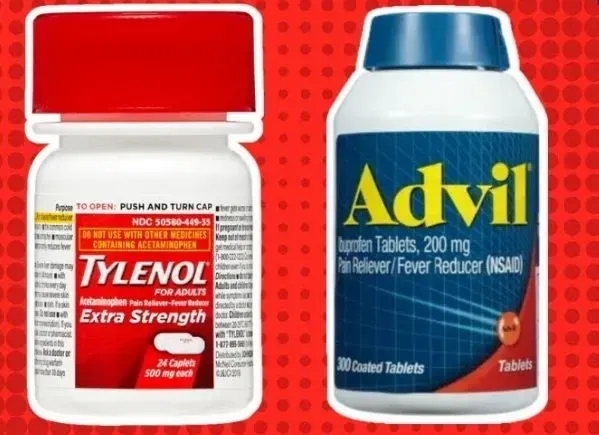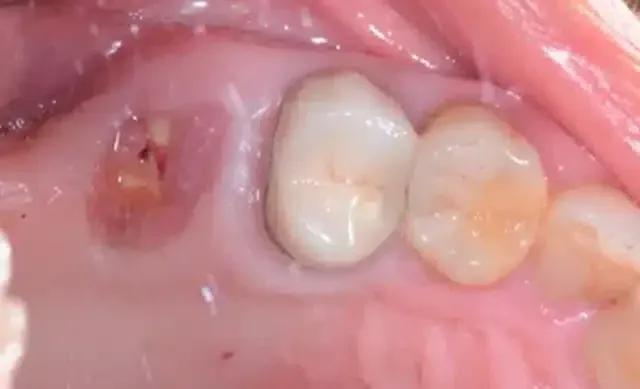Tylenol and Ibuprofen Together for Tooth Pain: Safe Dosage & Schedule (2026 Guide)
⚠️ Medical Disclaimer: This guide is for informational purposes only. Always consult your dentist or doctor…
Tylenol and Ibuprofen Together for Tooth Pain: Safe Dosage & Schedule (2026 Guide)
When you are dealing with a throbbing toothache that keeps you awake at night, standard painkillers often don’t seem like enough. You might be wondering: “Can I take Tylenol and Ibuprofen together for tooth pain?”
The short answer is: YES.
For most healthy adults, taking Acetaminophen (Tylenol) and Ibuprofen (Motrin/Advil) together is not only safe, but it is also one of the most effective strategies recommended by dentists to manage severe dental pain. Research suggests that this combination can be even more effective than some prescription opioids for dental relief.
Why This “Cocktail” Works Better Than One Drug Alone
The magic happens because these two medications attack the pain from different angles:
- Ibuprofen (NSAID): Works at the site of the tooth to reduce inflammation and swelling (which is usually the cause of the pressure).
- Acetaminophen (Tylenol): Works in the brain to block pain signals, changing how your body feels the pain.
By using them together, you get a “double-action” effect that provides stronger relief without exceeding the safe dose of either drug.
[Important] Tooth decay, bleeding gums, and persistent bad breath are often signs of deeper oral health issues. Ignoring these problems can lead to more serious dental complications over time. Supporting your teeth and gums with a proven dental formula may help reduce bacteria, improve gum health, and keep your mouth fresh and clean every day.
🚑 The Ultimate Toothache Survival Kit
Dentists recommend this trio for maximum relief at home:
How to Take Them Safely (The Schedule)
There are two common ways to take this combination. Choose the one that works best for you:
Option 1: The “Staggering” Method (Recommended)
This method keeps a steady level of pain relief in your system so the pain doesn’t “break through.” You take one medication, wait 3 hours, then take the other.
- 12:00 PM: Take Ibuprofen (e.g., 400mg).
- 3:00 PM: Take Acetaminophen (e.g., 500mg).
- 6:00 PM: Take Ibuprofen again.
- 9:00 PM: Take Acetaminophen again.
Option 2: The “Knockout” Method
If the pain is unbearable, you can take both pills at the exact same time. This hits the pain hard instantly.
- Take 500mg – 1000mg of Acetaminophen (Tylenol)
- AND 400mg – 600mg of Ibuprofen (Motrin)
- Repeat every 6 to 8 hours as needed.
Safety Warnings & Maximum Dosages
Even though these are over-the-counter drugs, they can be dangerous if misused. Follow these strict limits:
- Acetaminophen Limit: Do NOT exceed 3,000mg to 4,000mg in 24 hours. High doses damage the liver.
- Ibuprofen Limit: Do NOT exceed 3,200mg in 24 hours. High doses can damage the stomach and kidneys.
- Take with Food: Always take Ibuprofen with a meal or a glass of milk to prevent stomach upset.
The “Plus One” Method: Add Cold Therapy
Medication alone might dull the pain, but adding physical therapy can make a huge difference. Applying ice to the outside of your cheek helps numb the area and reduce blood flow, which decreases throbbing.
We recommended the Hands-Free Jaw Ice Wrap above because it straps around your head, allowing you to rest or sleep without holding the ice pack constantly.
When to Stop and See a Dentist
Remember, painkillers do not cure the infection. They only hide the symptoms. If you have swelling in the face, fever, or pain that lasts more than 2 days, you must see a dentist immediately.
You likely need an antibiotic, a root canal, or an extraction. Using Tylenol and Ibuprofen is a temporary bridge to get you to your appointment comfortably, not a permanent solution.











